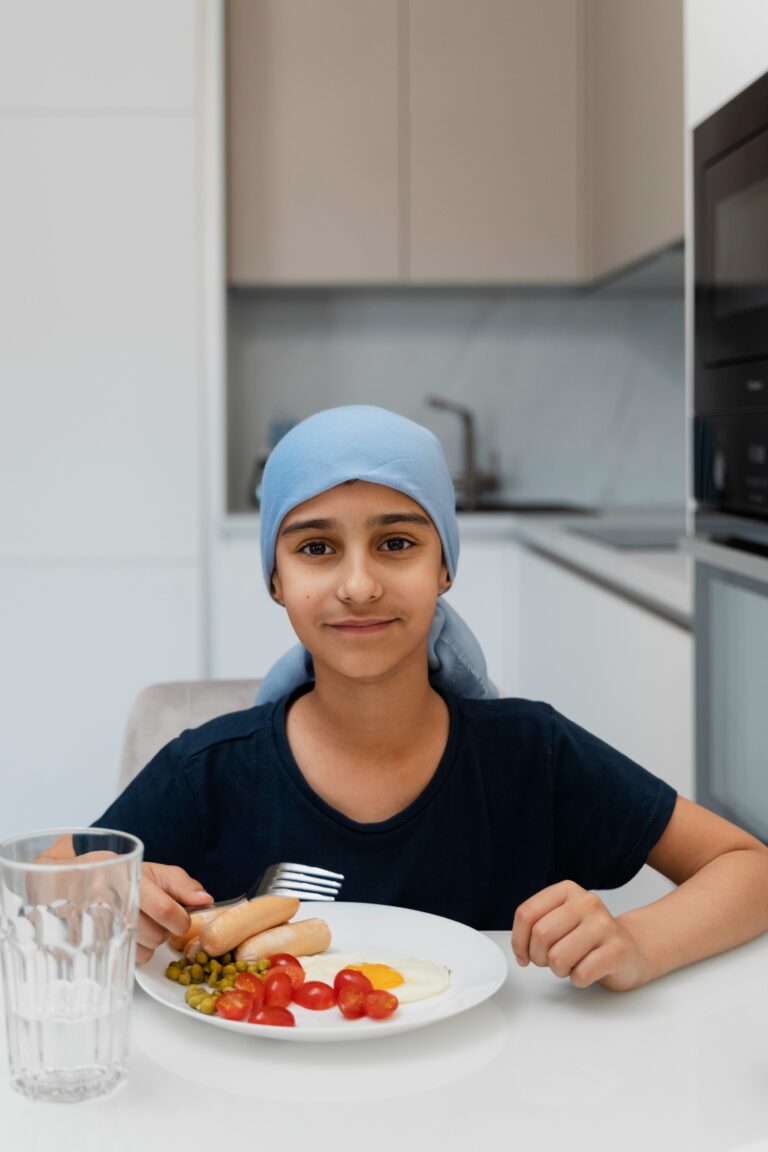The Ultimate Cancer-Fighting Diet: What to Eat (and Avoid)

cancer patient taking healthy diet
Cancer is one of the world's top causes of death; studies have shown that eating a nutritious diet can greatly reduce your risk and even aid in your recovery while undergoing treatment. Certain nutrients help protect cells, lower inflammation, and boost immunity, but no single diet can stop cancer. The greatest (and worst) foods for a cancer-fighting diet are included in this detailed post.
Colorful Fruits & Vegetables—Nature’s Antioxidant Powerhouses
Fruits and vegetables are rich in antioxidants, vitamins, and phytochemicals that neutralise harmful free radicals (unstable molecules that damage cells and may lead to cancer).
Berries (blueberries, strawberries, raspberries)—High in anthocyanins, which reduce inflammation and slow cancer cell growth.
Leafy greens (spinach, kale, arugula)—Packed with folate, a B vitamin that helps repair DNA and prevent mutations.
Cruciferous vegetables (broccoli, cauliflower, and Brussels sprouts) contain sulforaphane, a compound that helps detoxify carcinogens.
Tomatoes—rich in lycopene, linked to lower prostate cancer risk.
Carrots & sweet potatoes – High in beta-carotene, which boosts immunity.
Whole Grains—Fibre for a Healthy Gut
Refined grains (white bread, white rice) are stripped of nutrients, but whole grains keep their fibre, vitamins, and minerals. Fibre helps digestion and feeds good gut bacteria, which may lower colon cancer risk.
- Best Choices: Oats, quinoa, brown rice, and whole wheat are high in fibre and slow-digesting carbs.
- Avoid: white bread, pastries, and sugary cereals (linked to inflammation).
Healthy Fats—Fight Inflammation
Not all fats are bad! Omega-3 fatty acids and monounsaturated fats reduce inflammation, which is linked to cancer growth.
Best Sources: Omega-3-rich fatty fish (salmon, sardines, and mackerel) may slow the growth of tumors; nuts and seeds (walnuts, flaxseeds, and chia seeds) may contain lignans that may prevent the growth of cancer cells; avocados and olive oil are full of heart-healthy fats and antioxidants; and trans fats (fried foods, margarine) and processed vegetable oils (soybean, corn oil) should be avoided.
Lean Protein—Build Strength Without Risk
Processed meats (like bacon and sausages) contain nitrates and preservatives, which are linked to colorectal cancer. Instead, choose: Fish, particularly fatty fish, are a good source of healthy proteins because omega-3 fatty acids reduce inflammation.
Tofu, lentils, and beans are high in plant-based protein and fiber.
Poultry (chicken, turkey) is superior to red meat, which can raise the risk of cancer if consumed in excess.
Herbs & Spices—Natural Cancer Fighters
Many herbs and spices contain potent anti-cancer compounds.
- Turmeric—Contains curcumin, which may slow tumour growth.
- Garlic & onions—Have sulphur compounds that boost detoxification.
- Ginger—Reduces nausea (great for chemo patients) and fights inflammation.
Green Tea—A Super Drink
Green tea is loaded with catechins, antioxidants that may prevent cancer cell growth. Drinking 2-3 cups daily may lower breast, prostate, and stomach cancer risks.
Foods to Avoid for Cancer Prevention
Processed meats (bacon, sausages, ham) contain nitrates, which can form cancer-causing compounds. Sugary foods & drinks – High sugar intake feeds inflammation and obesity (a cancer risk factor). Alcohol—Even moderate drinking increases breast, liver, and colon cancer risk. Fried & highly processed foods—often contain unhealthy fats and additives.
A cancer-fighting diet focuses on eating more whole, nutrient-dense foods and avoiding processed, inflammatory ones, rather than imposing severe limits. Lean proteins, whole grains, colourful produce, and healthy fats should all be on your plate. Processed meats, sugar, and alcohol should be avoided.












